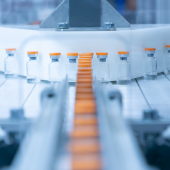Capital goods: indicators in recovery
Positive data on production, domestic market and exports performance at Federmacchine Assembly.
In 2014, Italian production of capital goods reached 36.7 billion euro, a 4.9% increase over the previous year. This result was determined both by the positive performance of exports and by the recovery of orders in the domestic market, which has begun to invest in capital goods again. As much emerges from preliminary data shared by Giancarlo Losma, president of Federmacchine, on the occasion of the capital goods manufacturers’ federation’s general assembly. During the meeting, economist Marc Fortis offered many more points for reflection by going over the basic points of his latest study entitled “Europe: recovery and imbalances. The Eurozone, Germany and Italy”.
Basic data. According to the data processed by Federmacchine’s statistics division, the decisive increase of production, reaching 36.7 billion euro, reflects the positive performance of all 13 sectors that participate in the Federation, all of which have recorded an increase in turnover. In the year in question, demand for capital goods in Italy resumed positive growth, with a 10.8% increase at 17.3 billion euro. The recovery of the Italian market first of all rewarded manufacturers, who saw their orders grow by 12.3%, reaching a total of 10.6 billion euro. But the effects were also positive on importers, who saw their sales increase by 8.5% to reach 6.8 billion euro.
Finally, exports passed the 26 billion euro hurdle, with a 2.1% increase compared to 2013 and a new record for the industry.
The main outlet markets for Italian supply are Germany (worth 2.9 billion euro, +6.8%), the United States (2.4 billion euro, +3%), China (2 billion, - 4.6%) and France (1.7 billion, -2.8%). With the recovery of the Italian market, manufacturers reoriented part of their supply, reducing the export share by 2 points, bringing it to 71%.
Support measures. «The 2014 numbers - stated Giancarlo Losma, Federmacchine president – give a snapshot of a dynamic sector that has managed to resist the crisis. And now it is reaping the benefits of the recovery in Italian consumption habits, which is certainly encouraged by the new Sabatini law, already funded for the entirety of 2015, and by the machinery tax incentive, which unfortunately expired on June 30th».
At such a sensitive point in time for the domestic market, the president concluded, it is vitally important that the government put in place adequate measures to support a recovery that we are already seeing proceed into 2015. What does Federmacchine propose? The renewal of the machinery tax incentive, with further incentives to replace obsolete equipment in consideration of new requirements for productivity, energy saving and workplace safety, but also and especially the adoption of measures able to sustain in a structured fashion the relaunch of the domestic market and Italian manufacturing. It would be a good idea to complement this by liberalizing amortizations on purchased capital goods and reviewing the coefficients used to calculate them, which are still «stuck in 1988».
«On the foreign front - Losma wound up - we are determined to repropose a further lowering of the IRAP tax featuring a reduction of taxable income, though only regarding the part concerning labor costs, for a share equal to the ratio of export/production generated by the concern, so as to stimulate companies to commit themselves even further to internationalisation».
Federmacchine is the national federation of capital goods and accessories manufacturers’ associations.
Goods that will go on to be used in manufacturing processes in industry and artisan workshops. It includes:
Acimac - machines and equipment for ceramics;
Acimall - wood processing machinery;
Acimga - machinery for graphics, paper and related industries;
Acimit - machinery for textiles;
Amafond - machinery and materials for foundries;
Assiot - power and motion transmission systems;
Assocomaplast - plastics and rubber processing machinery and moulds
Assofluid - fluid power equipment manufacturers and operators;
Assomac - footwear, leather goods and tannery machines;
Confindustria Marmomacchine-Assomarmomacchine - machines and equipment for processing stone;
Gimav - machines and accessories for glass;
Ucima - packaging machines;
Ucimu - machine tools, robots and automation.




















